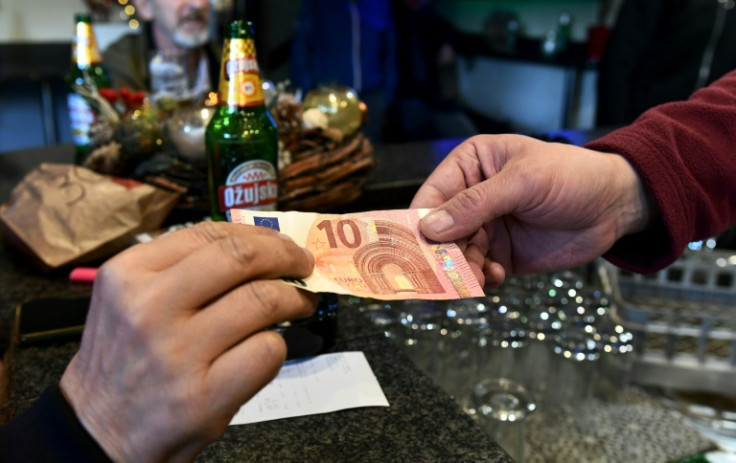Eurozone economic downturn steepens in July
Eurozone economic activity shrank at its fastest rate in eight months in July, as a contraction gathered pace on the back of cuts in manufacturing, a key survey said Monday.

Eurozone economic activity shrank at its fastest rate in eight months in July, as a contraction gathered pace on the back of cuts in manufacturing, a key survey said Monday.
Data from the HCOB Flash Eurozone purchasing managers' index (PMI) survey published by S&P Global fell to 48.9 in July from 49.9 in June. A figure above 50 indicates growth.
"Manufacturing continues to be the Achilles heel of the eurozone. Producers have cut their output again at an accelerated pace in July," said Cyrus de la Rubia, chief economist at Hamburg Commercial Bank.
"The eurozone economy will likely move further into contraction territory in the months ahead, as the services sector keeps losing steam."
The eurozone's struggles were fuelled by steep downturns signalled by surveys from economic powerhouses France and Germany.
Germany fell into contraction as output dropped for the first time since January on the back of a sharp decrease in factory output, the latest figured showed.
The painful PMI data comes as the European Central Bank is eyeing a further rate hike this week in its quest to tame inflation.
Eurozone inflation eased to 5.5 percent in June as energy costs slid, but those of food and drinks remained elevated as underlying price pressures persist.
Since consumer prices remain above the European Central Bank's two-percent target, another interest rate hike appears a near certainty when ECB policymakers meet Thursday.
But the central bank faces increasing discontent among countries scared high interest rates will hurt growth.
The eurozone entered a technical recession at the start of the year, and growth is forecast to be weak this year at around one percent.
"The latest PMI reading is not going to please ECB officials as prices in the private sector are still creeping up, led solely by the substantial services sector," de la Rubia said.
"Thus, ECB president Christine Lagarde will certainly stick to her guns and hike interest rates by 25 bp (basis points) at the next monetary meeting."
The Frankfurt-based institution has lifted borrowing costs at the fastest rate ever to combat red-hot inflation after Russia's war in Ukraine sent food and energy prices soaring.
Key rates have risen by four percentage points since July last year, with the ECB's deposit rate now sitting at 3.50 percent -- its highest level since 2001.
© Copyright AFP 2025. All rights reserved.





















